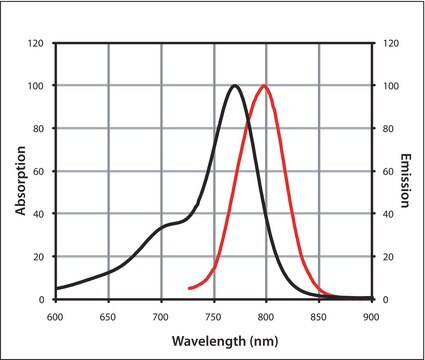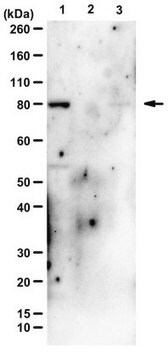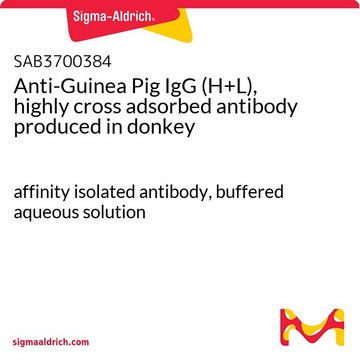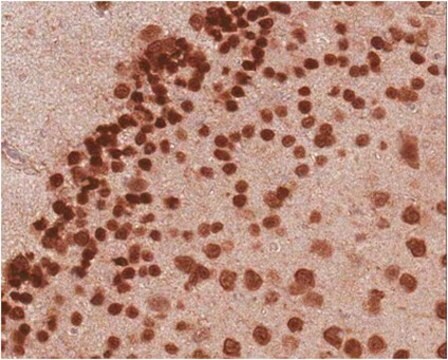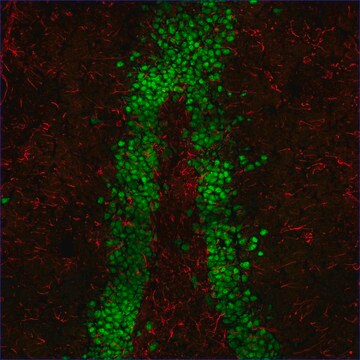AP193C
Donkey Anti-Guinea Pig IgG Antibody, Cy3 conjugate, Species Adsorbed
Chemicon®, from donkey
Sign Into View Organizational & Contract Pricing
All Photos(1)
About This Item
UNSPSC Code:
12352203
eCl@ss:
32160702
NACRES:
NA.46
Recommended Products
biological source
donkey
Quality Level
conjugate
CY3 conjugate
antibody form
F(ab′)2 fragment of affinity isolated antibody
antibody product type
secondary antibodies
clone
polyclonal
species reactivity
guinea pig
manufacturer/tradename
Chemicon®
technique(s)
immunofluorescence: suitable
shipped in
wet ice
target post-translational modification
unmodified
Application
Detect Donkey Guinea Pig IgG using this Donkey anti-Guinea Pig IgG Antibody, Cy3 conjugate, Species Adsorbed validated for use in IF.
Research Category
Secondary & Control Antibodies
Secondary & Control Antibodies
Research Sub Category
Secondary Antibodies Adsorbed for Dual Labeling
Secondary Antibodies Adsorbed for Dual Labeling
Legal Information
CHEMICON is a registered trademark of Merck KGaA, Darmstadt, Germany
Disclaimer
Unless otherwise stated in our catalog or other company documentation accompanying the product(s), our products are intended for research use only and are not to be used for any other purpose, which includes but is not limited to, unauthorized commercial uses, in vitro diagnostic uses, ex vivo or in vivo therapeutic uses or any type of consumption or application to humans or animals.
Not finding the right product?
Try our Product Selector Tool.
hcodes
pcodes
Hazard Classifications
Aquatic Chronic 3
Storage Class
11 - Combustible Solids
wgk_germany
WGK 3
Certificates of Analysis (COA)
Search for Certificates of Analysis (COA) by entering the products Lot/Batch Number. Lot and Batch Numbers can be found on a product’s label following the words ‘Lot’ or ‘Batch’.
Already Own This Product?
Find documentation for the products that you have recently purchased in the Document Library.
L R Herron et al.
Neuroscience, 226, 313-323 (2012-09-25)
The fatal neurodegenerative disease amyotrophic lateral sclerosis (ALS) is characterised by loss of motoneurons of the brainstem and spinal cord, and corticospinal neurons of the motor cortex. There is also increasing evidence of involvement of glial cells and interneurons, with
Production and histological application of affinity-purified antibodies to heat-denatured green fluorescent protein.
Nakamura, KC; Kameda, H; Koshimizu, Y; Yanagawa, Y; Kaneko, T
The journal of histochemistry and cytochemistry : official journal of the Histochemistry Society null
Non-epithelial stem cells and cortical interneuron production in the human ganglionic eminences.
Hansen, DV; Lui, JH; Flandin, P; Yoshikawa, K; Rubenstein, JL; Alvarez-Buylla, A; Kriegstein, AR
Nature Neuroscience null
Y H Huang et al.
European journal of histochemistry : EJH, 53(2), e10-e10 (2009-06-29)
We used immunofluorescence double staining method to investigate the cellular localization of glucagon and pancreatic polypeptide (PP) in rat pancreatic islets. The results showed that both A-cells (glucagon-secreting cells) and PP-cells (PP-secreting cells) were located in the periphery of the
Yuki Muranishi et al.
The Journal of neuroscience : the official journal of the Society for Neuroscience, 31(46), 16792-16807 (2011-11-18)
The molecular mechanisms underlying cell fate determination from common progenitors in the vertebrate CNS remain elusive. We previously reported that the OTX2 homeoprotein regulates retinal photoreceptor cell fate determination. While Otx2 transactivation is a pivotal process for photoreceptor cell fate
Our team of scientists has experience in all areas of research including Life Science, Material Science, Chemical Synthesis, Chromatography, Analytical and many others.
Contact Technical Service
